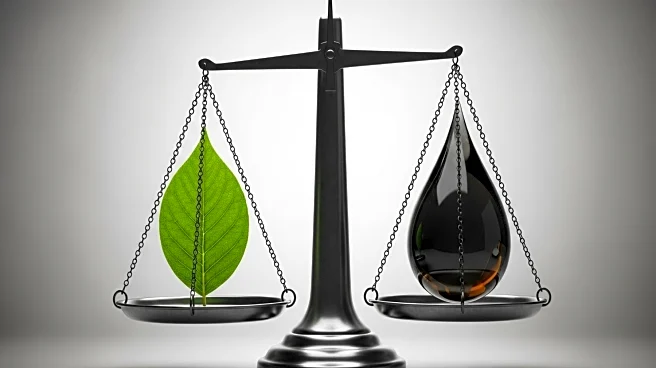What is the story about?
What's Happening?
A federal judge dismissed a lawsuit by Puerto Rican municipalities against the fossil fuel industry, which sought accountability for the climate-related destruction caused by Hurricane Maria. The case included allegations of antitrust violations by oil companies, claiming they conspired to block clean energy alternatives. Although dismissed for being untimely, the case brings attention to the role of antitrust laws in addressing climate change. The lawsuit is part of a broader legal strategy to hold the fossil fuel industry accountable for its impact on climate change and to promote a transition to clean energy.
Why It's Important?
The case highlights the potential of antitrust laws as a tool in the climate change debate, offering a new legal avenue to challenge the fossil fuel industry's practices. This approach could lead to increased scrutiny of the industry's efforts to suppress clean energy development and maintain market dominance. The outcome of such cases could influence future legal strategies and policy decisions, potentially accelerating the transition to renewable energy. The dismissal also underscores the challenges faced by communities seeking justice for climate-related damages.
What's Next?
The plaintiffs plan to appeal the dismissal, which could lead to further legal proceedings and potentially set a precedent for future climate-related antitrust cases. The ongoing legal battles may encourage other municipalities and organizations to pursue similar claims, increasing pressure on the fossil fuel industry. The case could also prompt legislative and regulatory changes to address antitrust issues in the energy sector.















